Floyd Patterson Through The Years
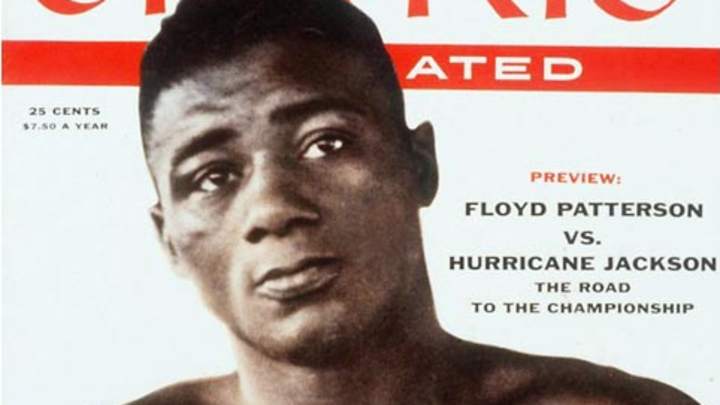
Floyd Patterson Through The Years
Cover: June 4, 1956

Patterson-Moore
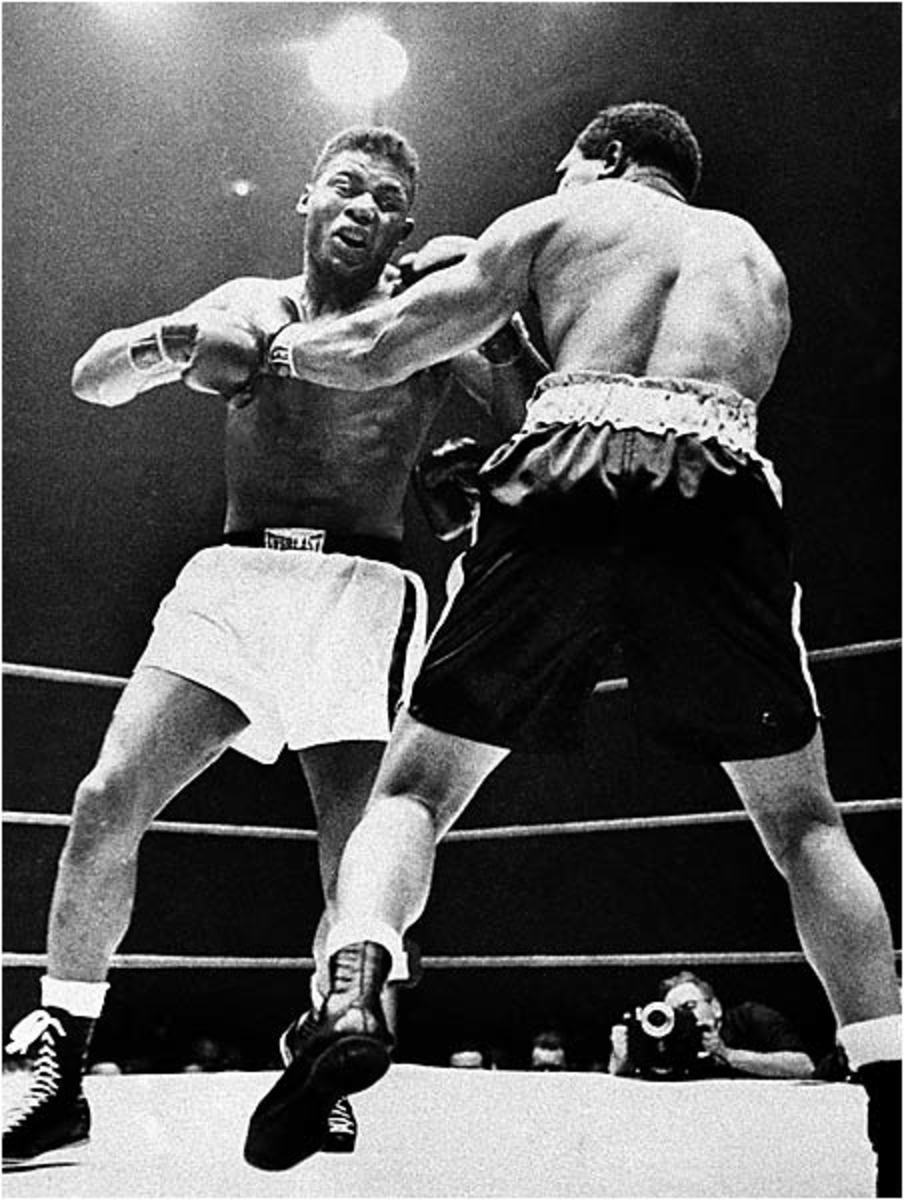
Call this one a battle of the ages. Patterson, who had turned pro after winning the middleweight gold medal in the 1952 Olympics, was just 21 when he faced Archie Moore, 42, for the heavyweight title vacated by Rocky Marciano. On Nov. 30, 1956, in Chicago Stadium, Patterson knocked out the Old Mongoose in five rounds to become the youngest heavyweight champion in history.
Patterson-Jackson
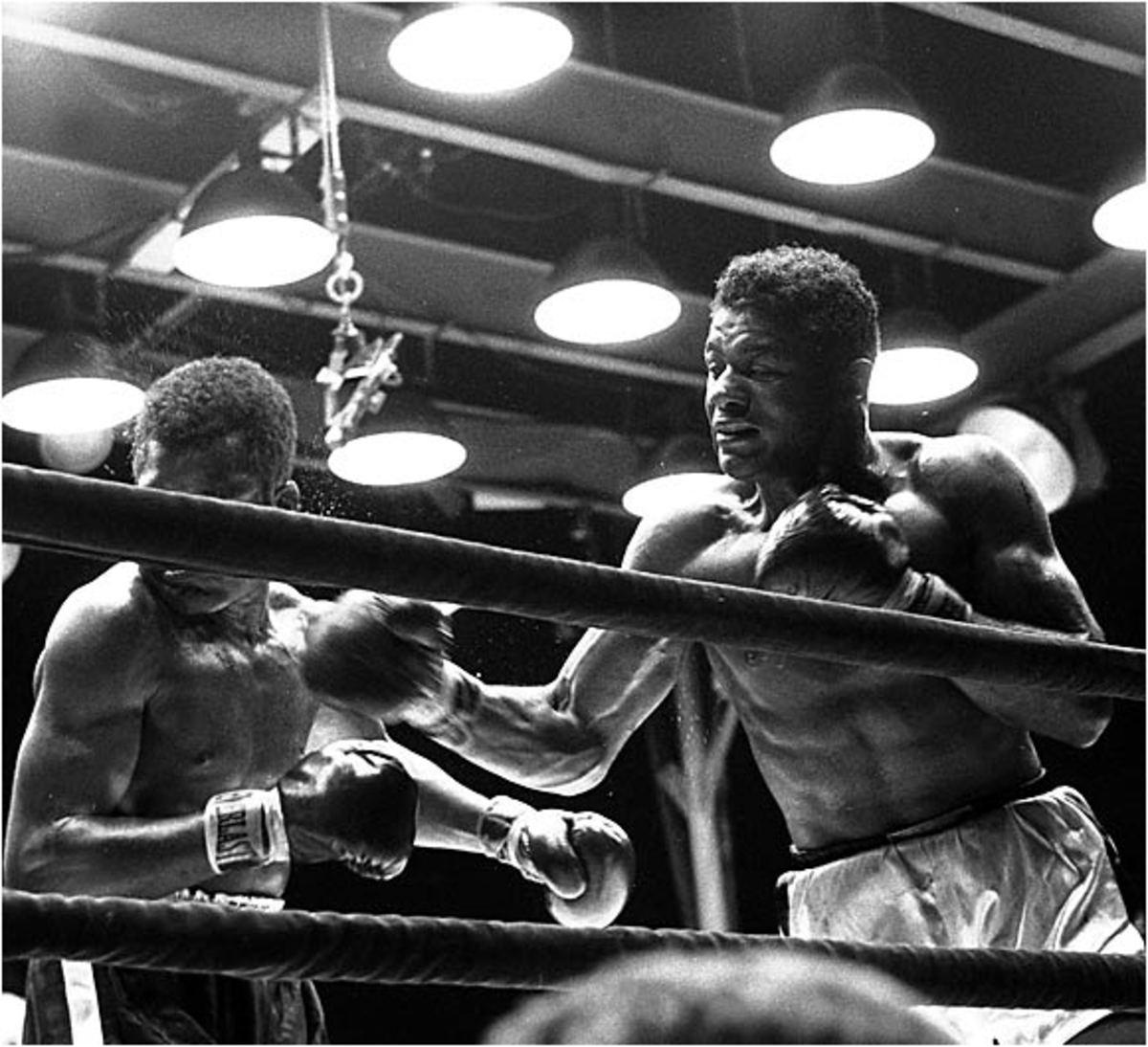
On July 29, 1957, at the Polo Grounds in New York City, Patterson made the first defense of his heavyweight title, facing Tommy (Hurricane) Jackson. Patterson had beaten Jackson by a split decision the year before in a title elimination bout. This time the new champ left no room for doubt, dropping Jackson in the first, second and ninth rounds on the way to a TKO in the 10th.
Cover: July 29, 1957
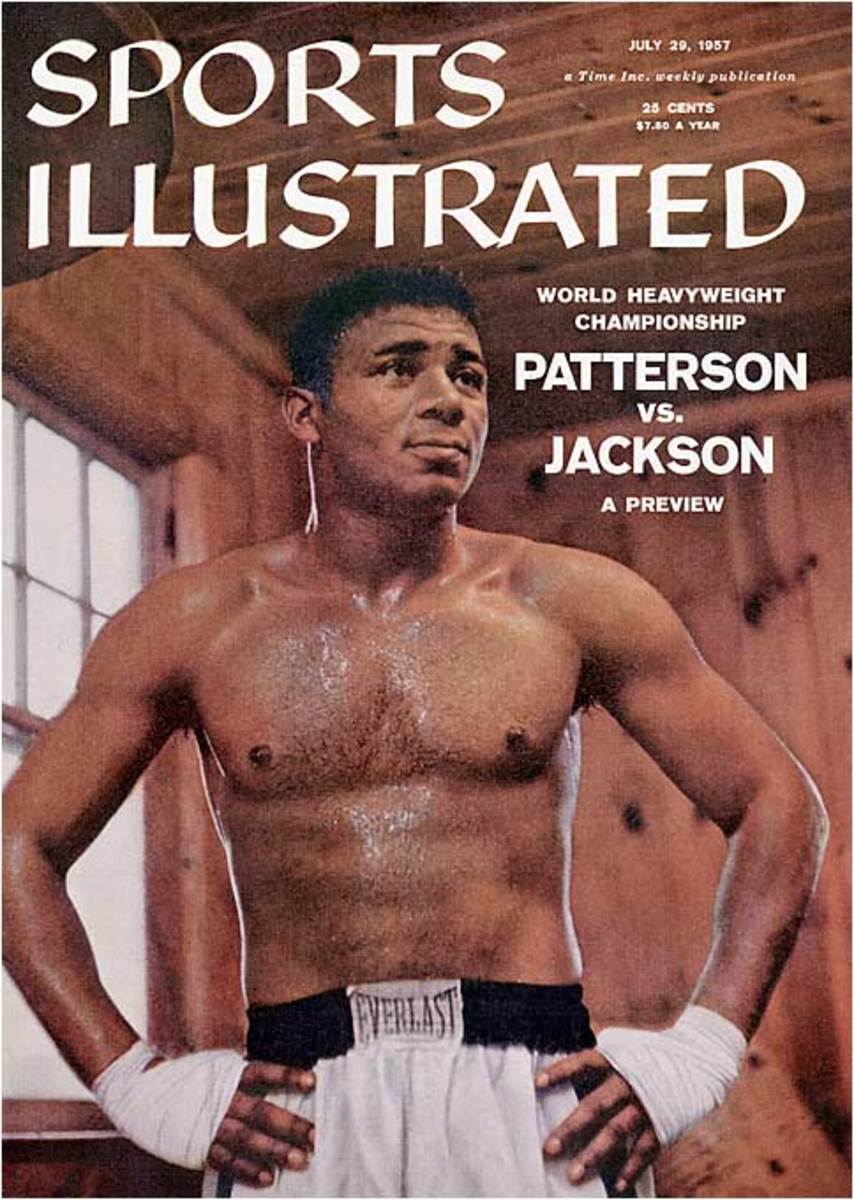
Cover: Sept. 1, 1958
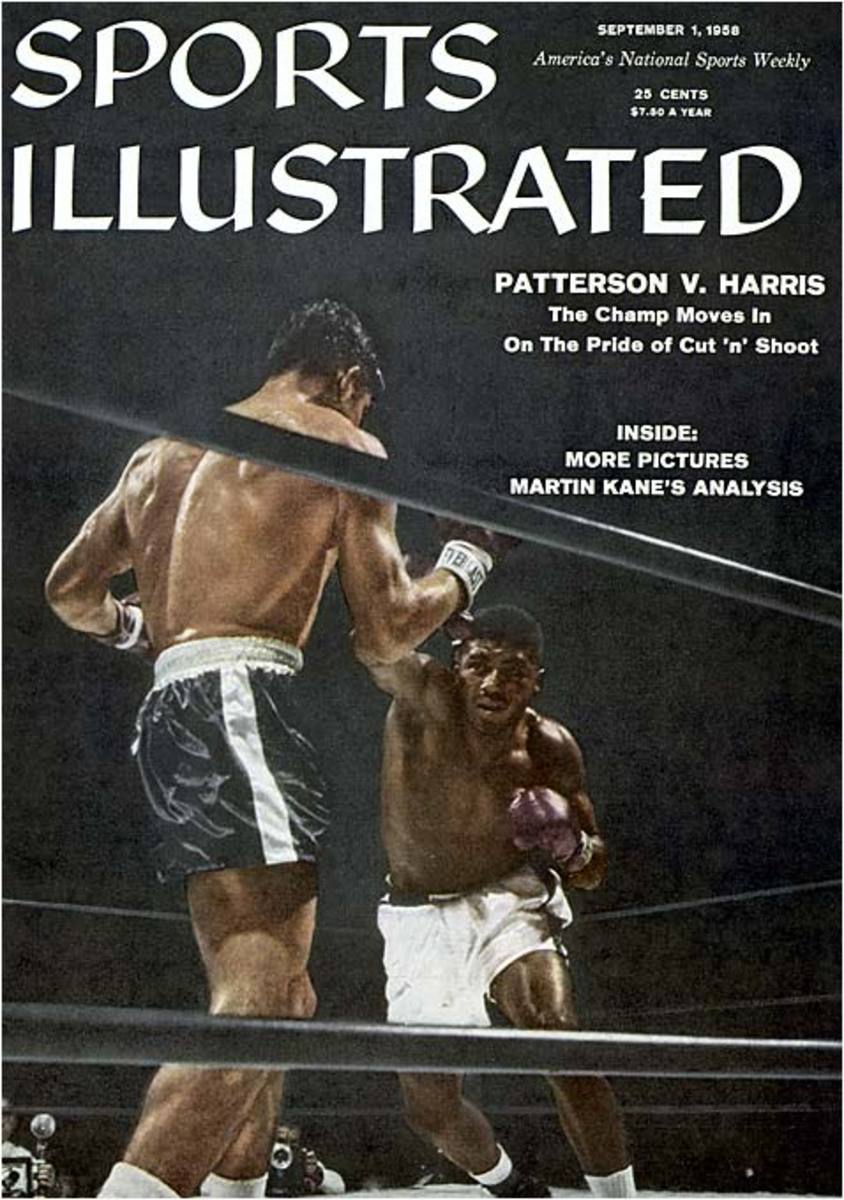
Cover: July 6, 1959
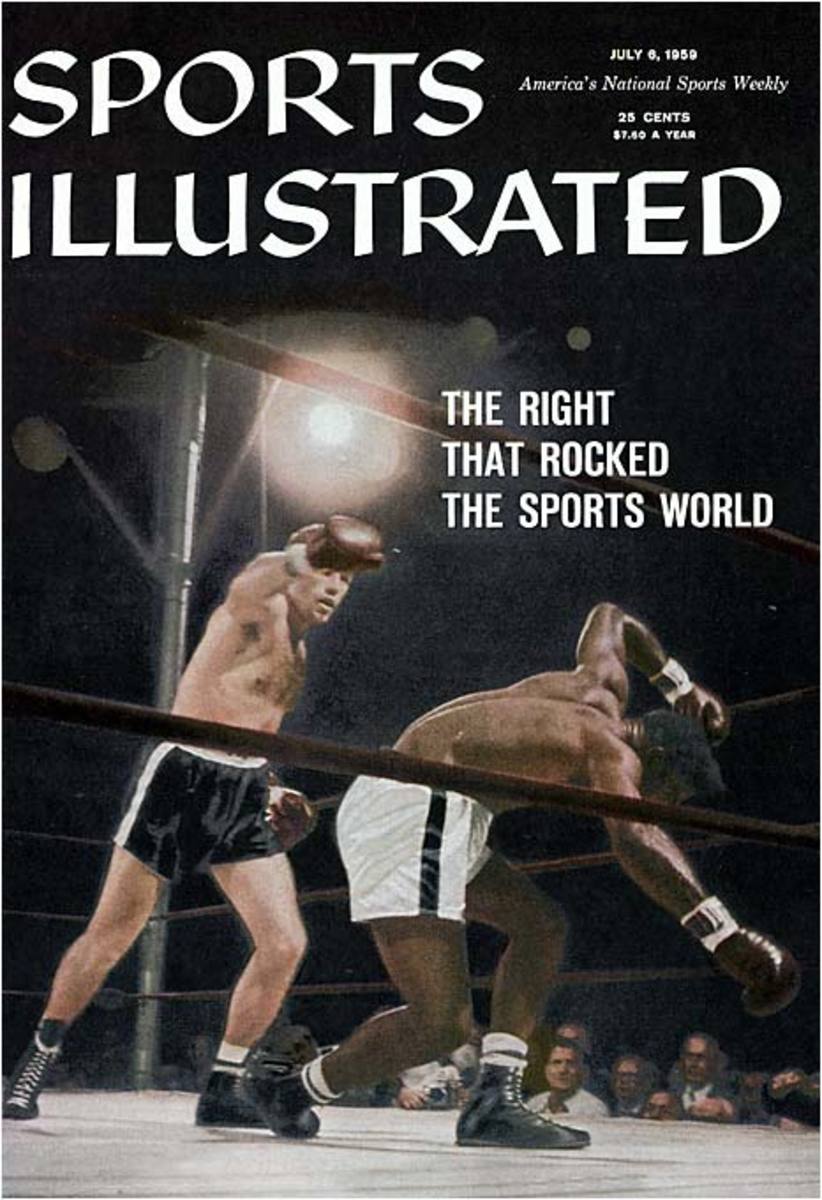
Patterson-Johansson
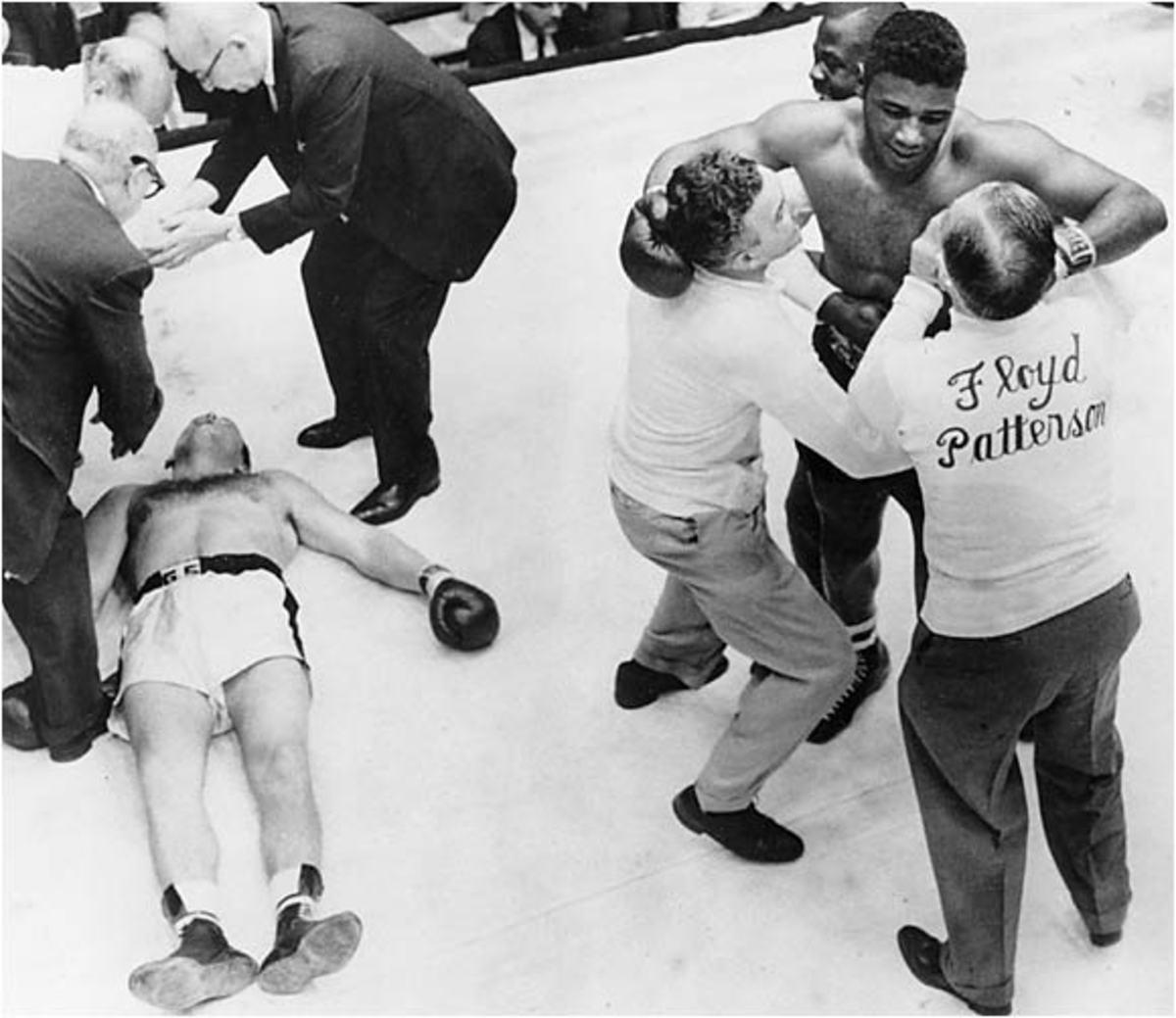
In June 1959 Patterson had lost his title in shocking fashion to Ingemar Johannson. The Swedish heavyweight had unleashed what he called the "Toonder" of his right hand and knocked Patterson down seven times in three rounds. Humiliated, Patterson vowed revenge, driving himself in training and cultivating a "hatred" for Johansson. On June 20, 1960, fighting with focus and fury, Patterson became the first man to regain the heavyweight crown, shrugging off Johannson's right to score a devastating fifth-round knockout. Said Patterson, whose final left hook left Johansson twitching on the canvas, "I never want to hate like that again."
March 13, 1961
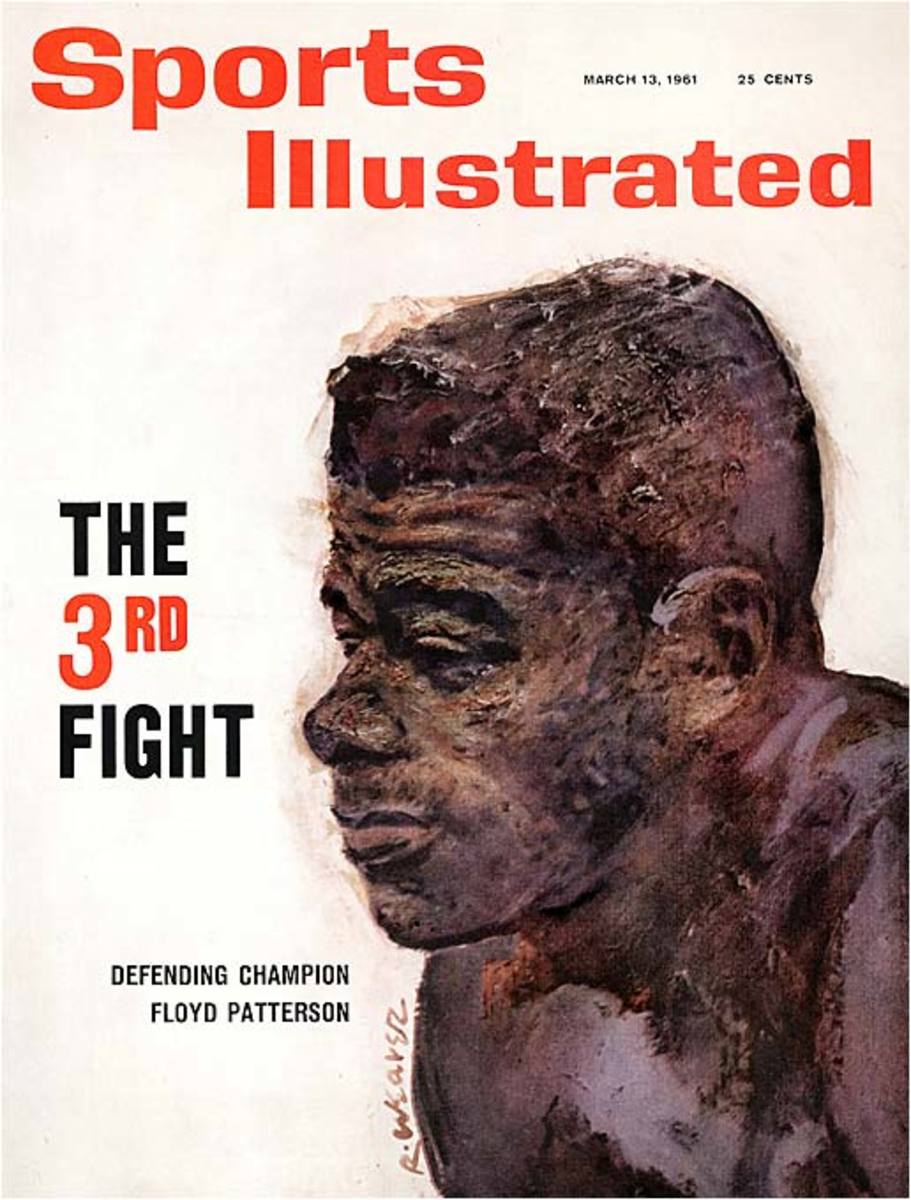
Patterson-Johansson
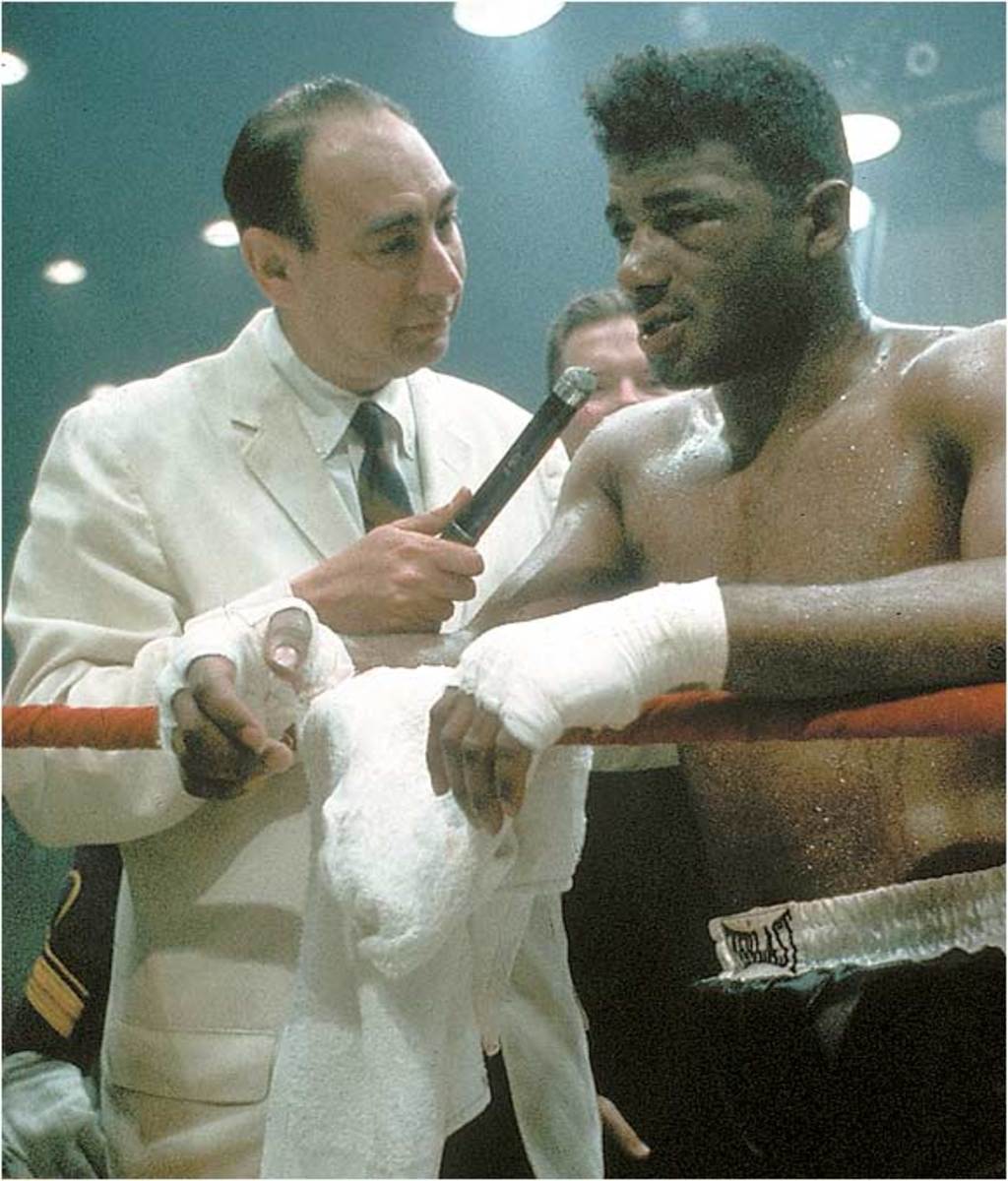
Patterson and Johansson met for a third time, on March 13, 1961. The fight, held in the Miami Beach Convention Hall, was like a highlight reel of their first two. In the first round alone Patterson went down twice and Johansson once. After four more toe-to-toe rounds, Patterson finished Johansson with a right hand. After the bout he shared his thoughts on the trilogy with a young (and relatively thick-haired) Howard Cosell.
May 28, 1962
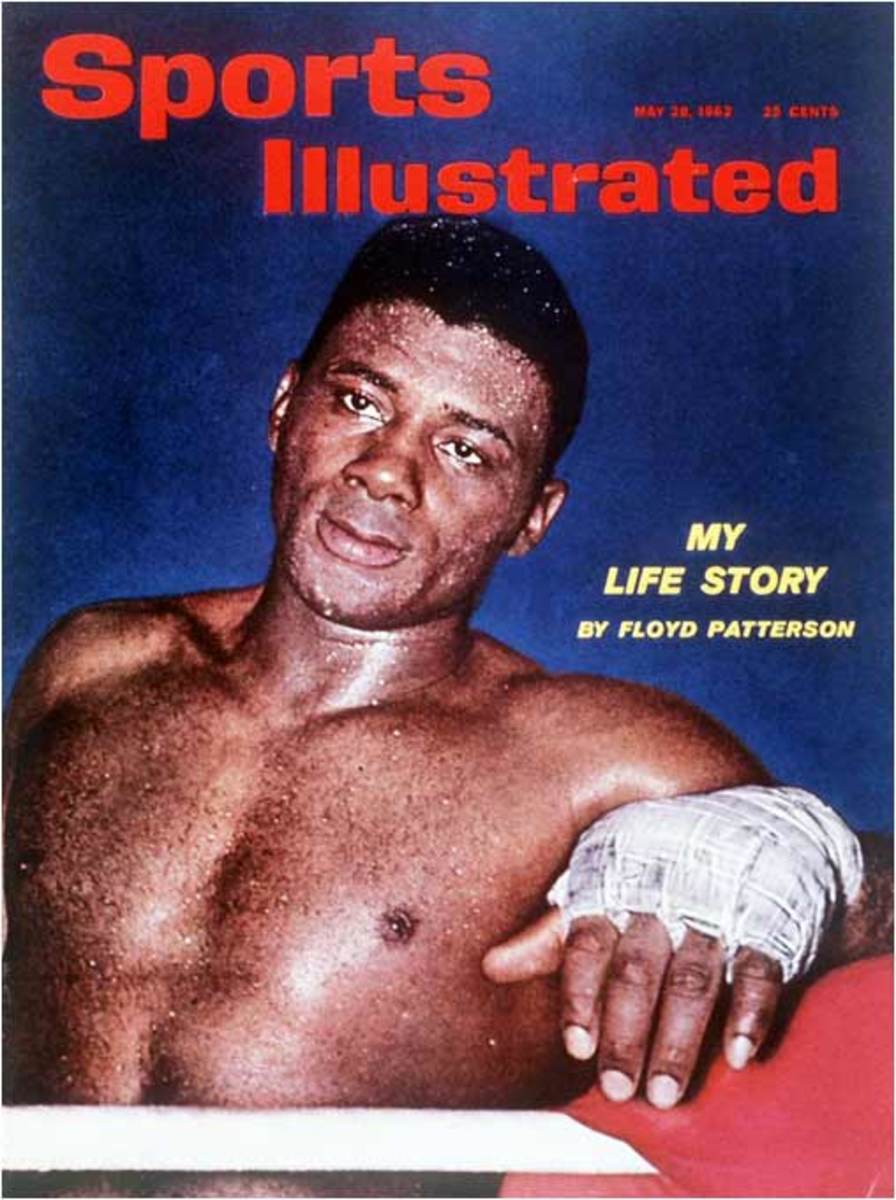
Cover: Sept. 17, 1962
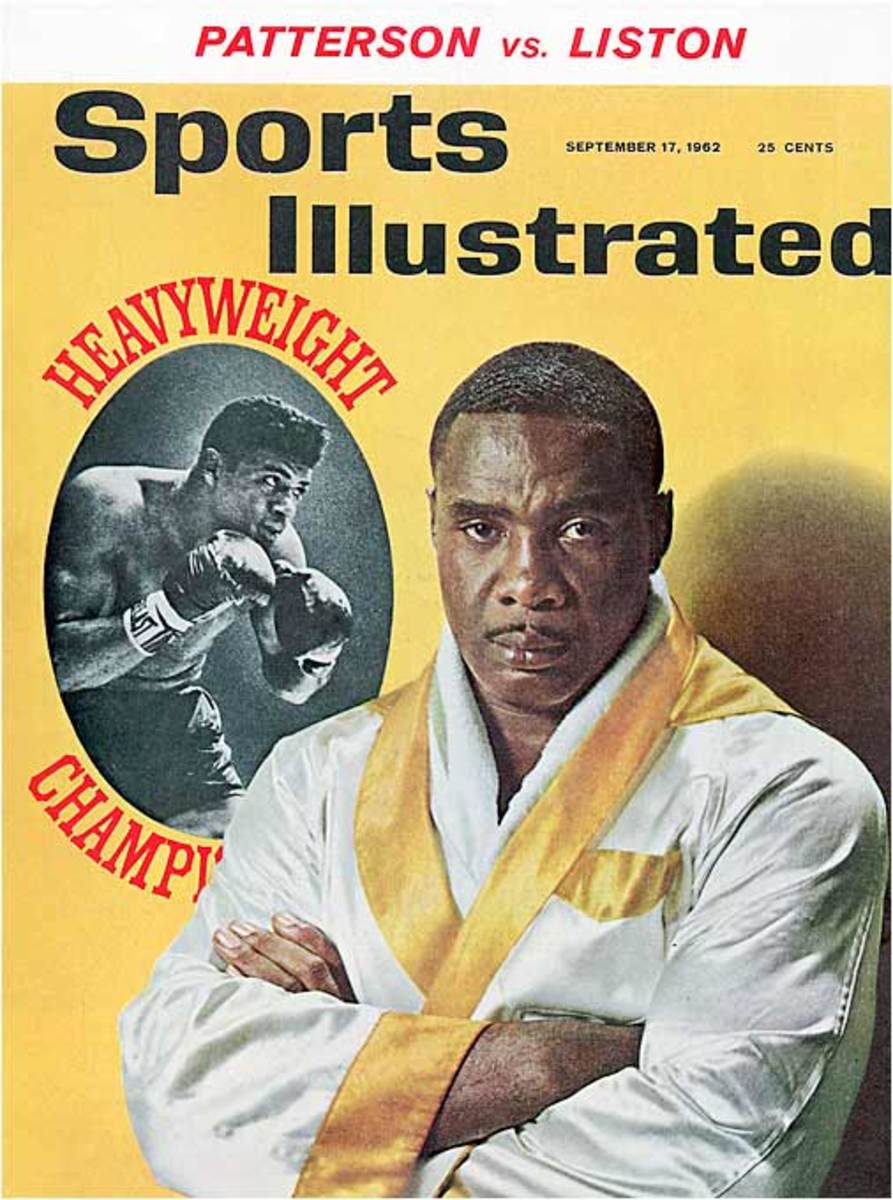
Patterson-Liston
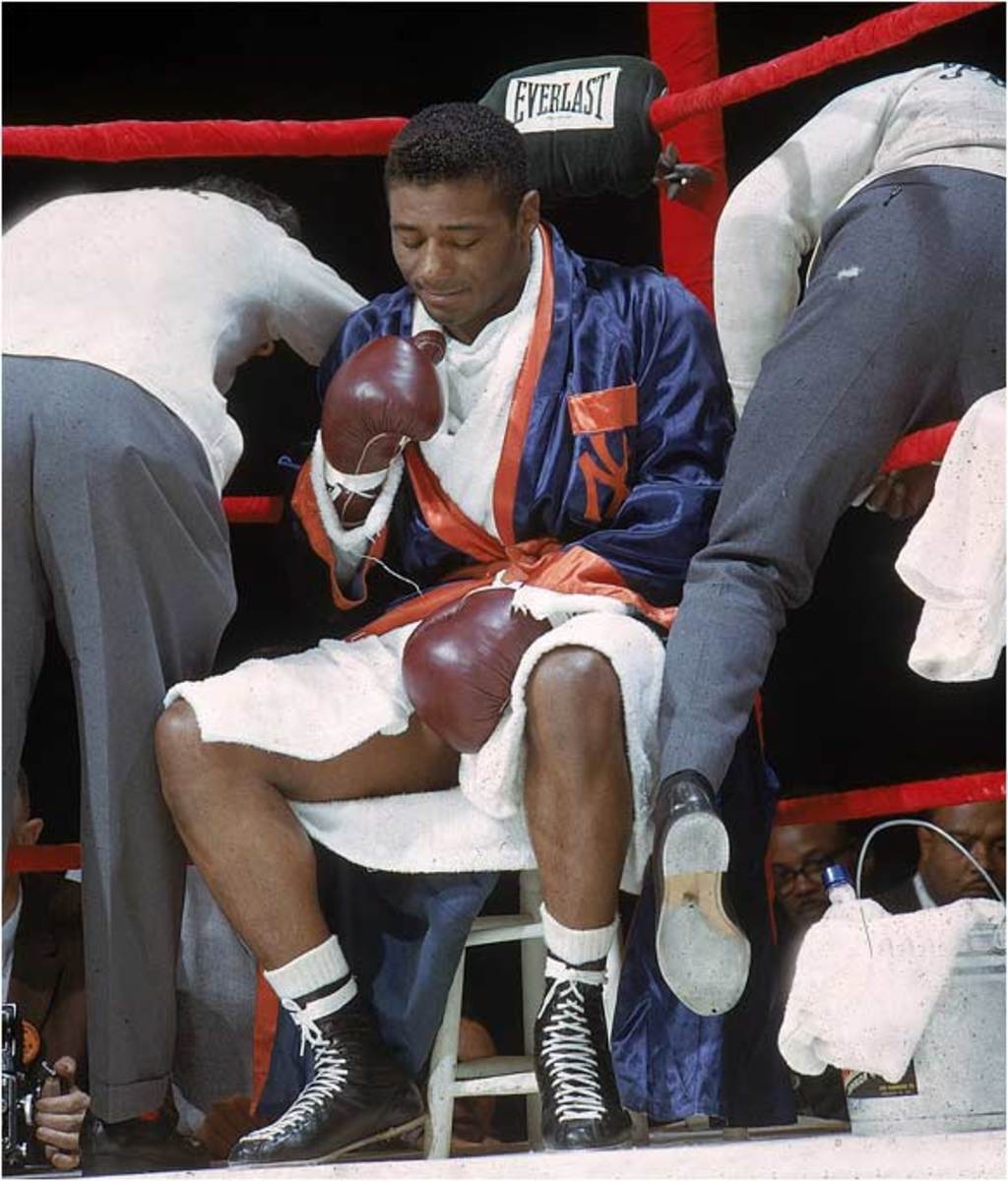
Sonny Liston had been the top contender for two years, but Patterson, at the insistence of his manager, Cus D'Amato, had refused to grant Liston a fight. D'Amato reportedly objected to Liston's Mob connections, though some cynics suggested that what the canny Cus really objected to was Liston's size, speed and punching power. Patterson eventually insisted on facing his challenger. "One night in bed I made up my mind," he said. "I knew if I wanted to sleep comfortably, I'd have to take on Liston." And so, on Sept. 25, 1962, he found himself seated across the ring from the most formidable opponent of his career.
Patterson-Liston
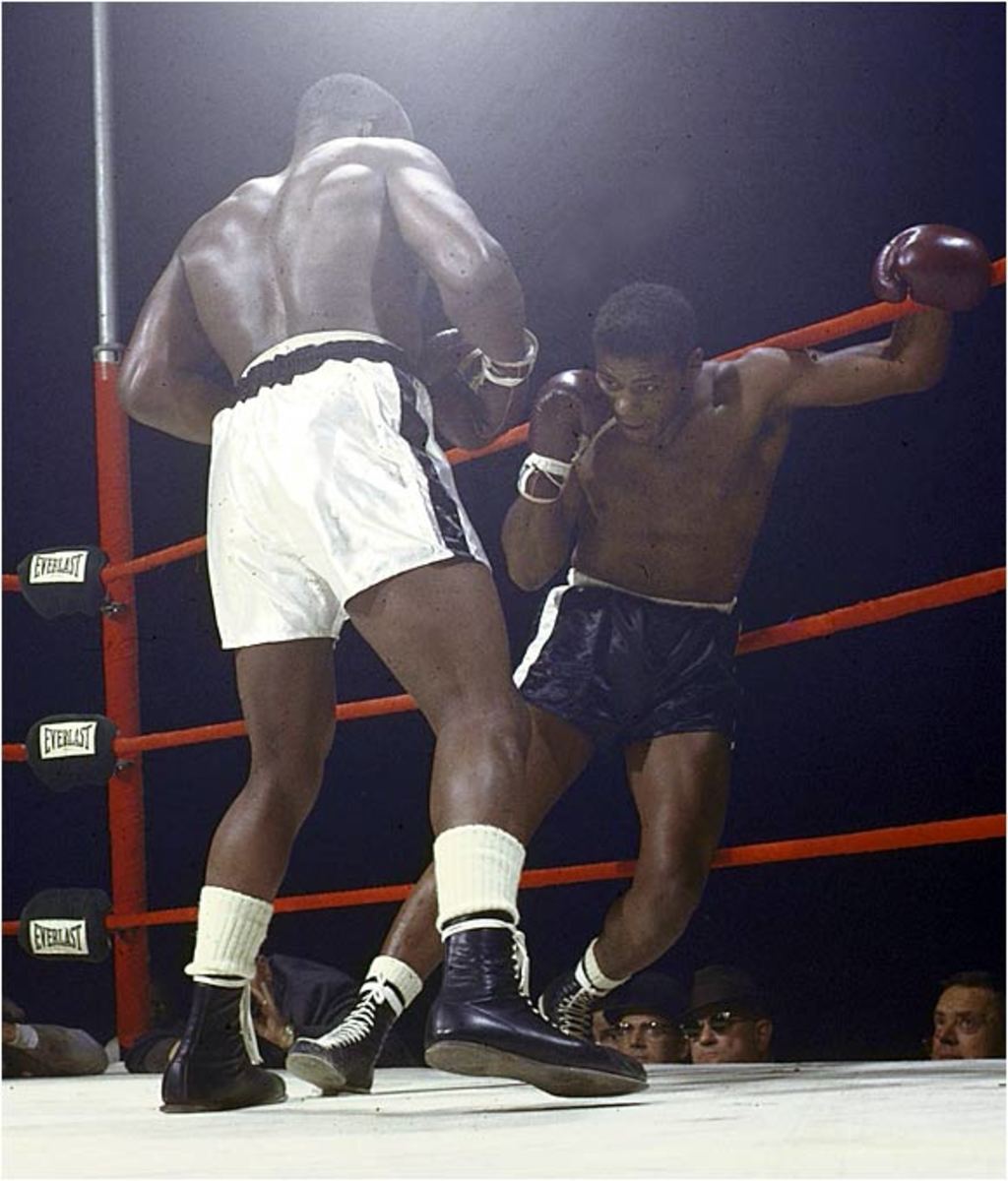
In a match promoted as nothing short of Good vs. Evil, Good (Patterson) weighed in at 189 pounds, Evil (Liston) at 214. That night in Chicago's Comiskey Park--as, perhaps, in life in general--it was no contest. Though employing his signature crouch and weave, Patterson couldn't evade Liston's jab (maybe the best in heavyweight history) and could not hold the bigger man off. Liston drove him into the ropes and finished him off with a thudding combination. The fight lasted two minutes and six seconds.
Patterson-Chuvalo
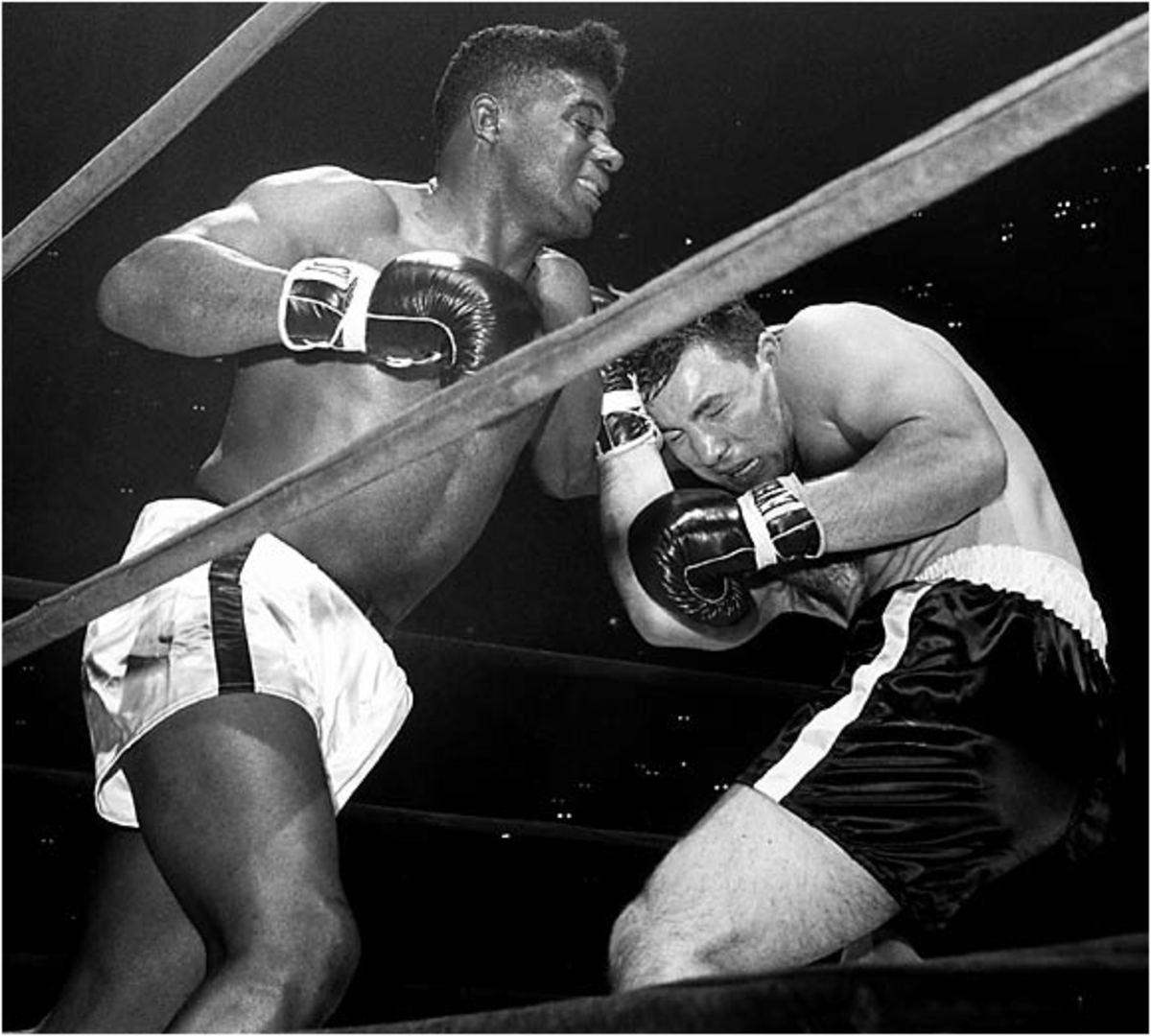
Patterson had gone into hiding after his first loss to Liston, and when he lasted just four seconds longer in a rematch the following year, it seemed his career might well be over. But, since his impoverished childhood in Brooklyn, Patterson had been a survivor, and he fought on, winning three bouts overseas before returning to the spotlight in New York City's Madison Square Garden against rugged Canadian contender George Chuvalo. Fighting with a broken left hand, Patterson used his speed and superior skill to gut out a unanimous decision win.
Cover: Nov. 22, 1965
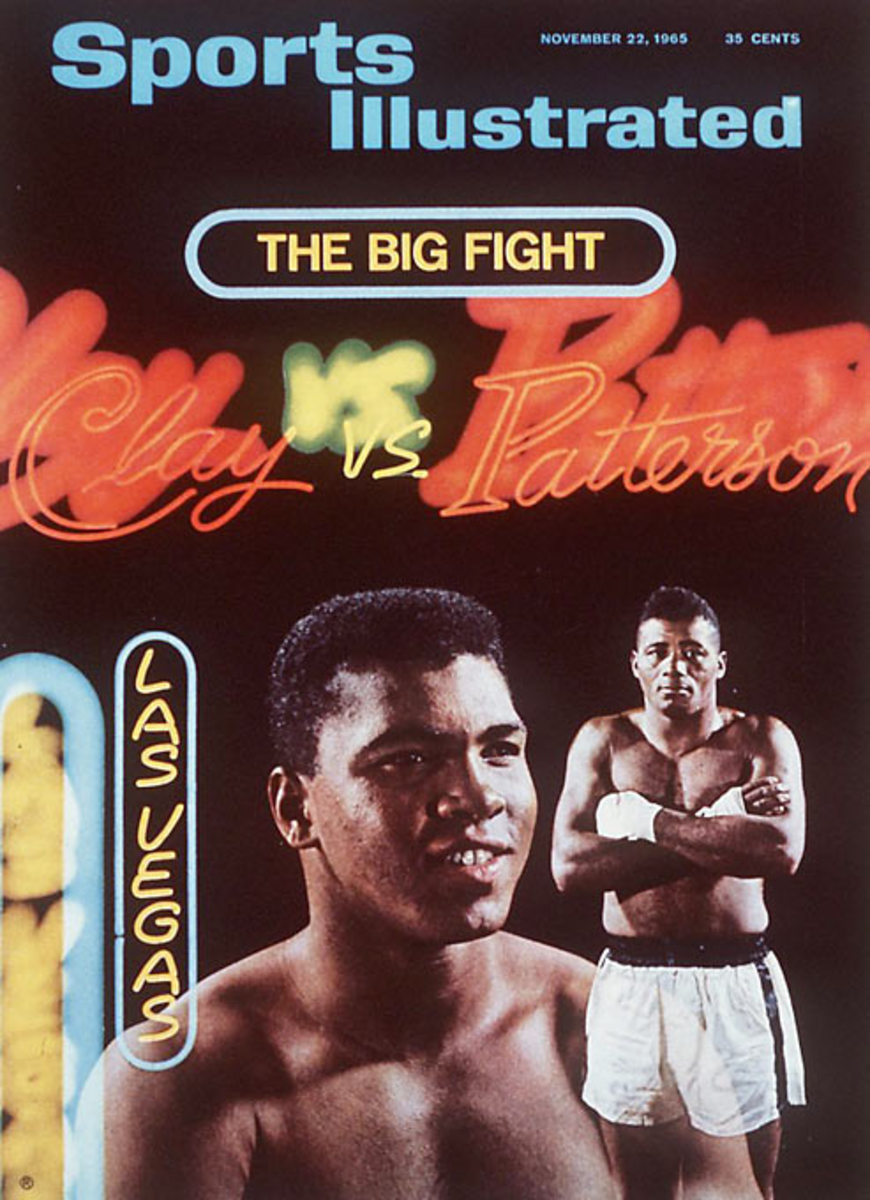
Patterson-Ali
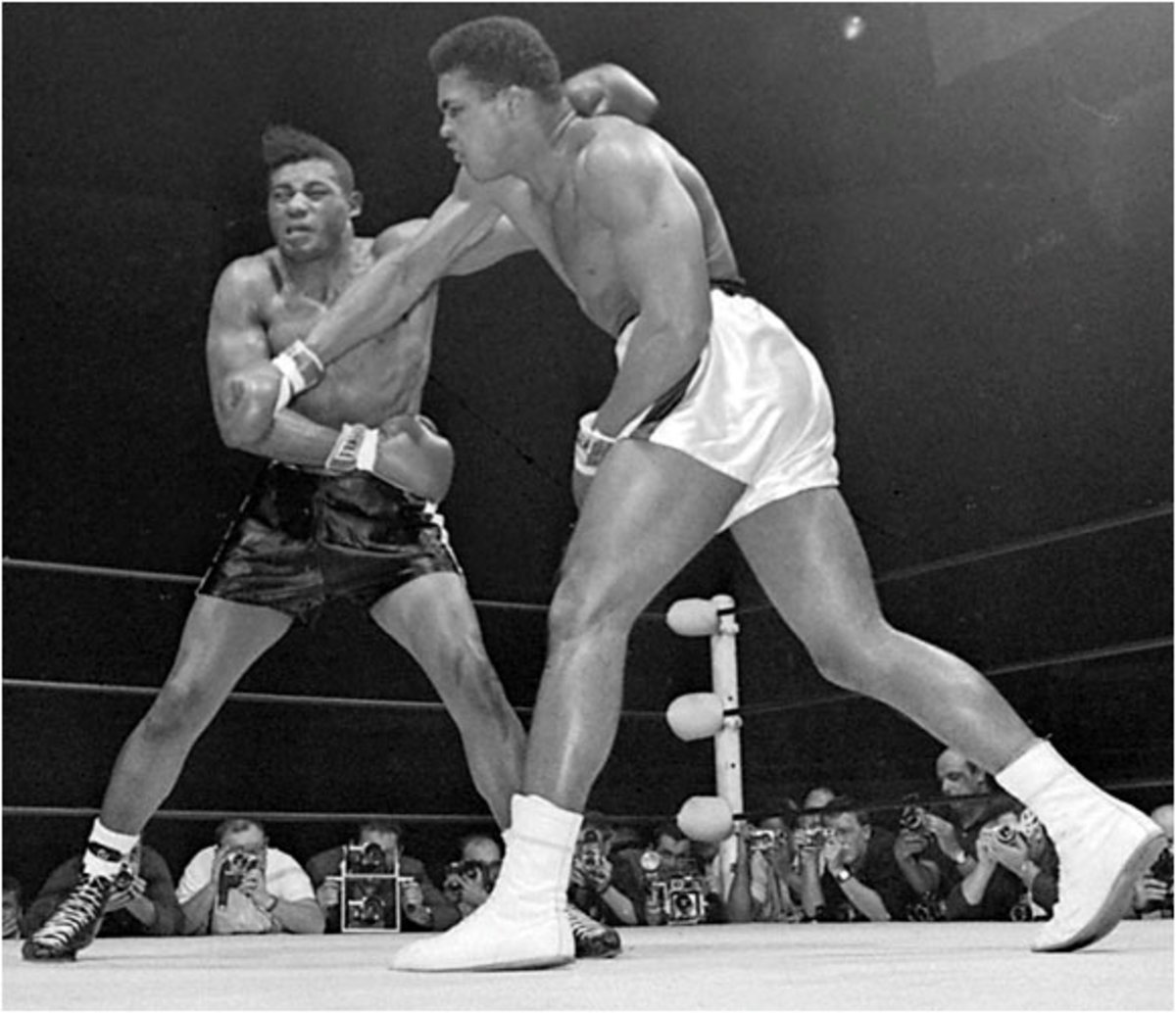
His win over Chuvalo earned Patterson a shot at Muhammad Ali, who had taken the heavyweight title from Liston in 1964. The bout, on Nov. 22, 1965, in the Convention Center in Las Vegas, was an ugly moment in the sport. Patterson, boxing with a slipped disc in his back, was no match for the champion, and Ali, angered by Patterson's insistence on referring to him as "Clay," punished and taunted him throughout. The fight was finally stopped in the 12th round. Afterward, Ali insisted he had not been trying to prolong Patterson's agony. "He took my best punches," said Ali. "He just wouldn't go down."
Patterson at home in New Paltz, N.Y.
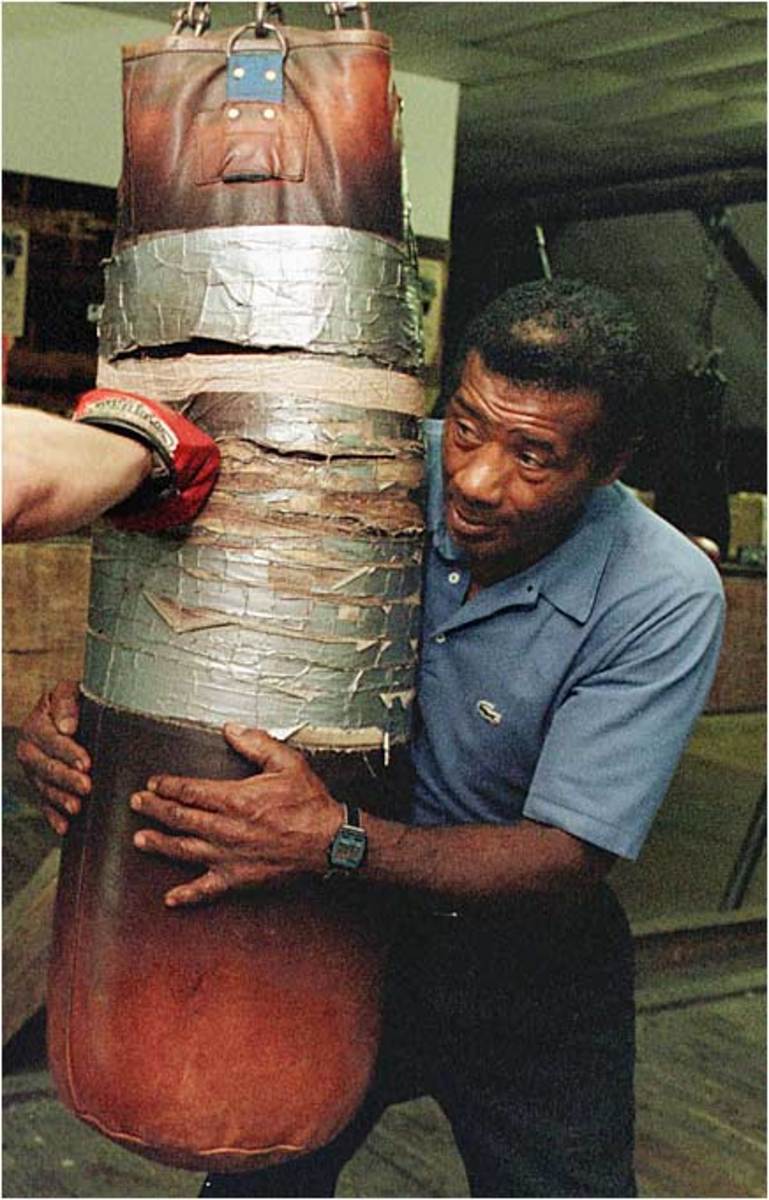
Red Smith once called Patterson "the man of peace who loves to fight," and indeed boxing's youngest heavyweight champ, who had always seemed too sensitive a soul for the prize ring, kept on fighting (though he was well-off financially) until 1972, finally retiring at age 37, after losing a second time to Muhammad Ali. In his retirement, Patterson trained young boxers--including adopted son Tracy Harris Patterson--at his home gym in New Paltz, N.Y., and served as boxing commissioner for New York State.
Patterson at home in New Paltz, N.Y.

Patterson, suffering from Alzheimer's disease, resigned his position as New York boxing commissioner in 1998, but not before leading campaigns for several safety measures in the sport. Elected to the international Boxing Hall of Fame in 1991, Patterson remained an ambassador for the sport that he always said had saved his life.
